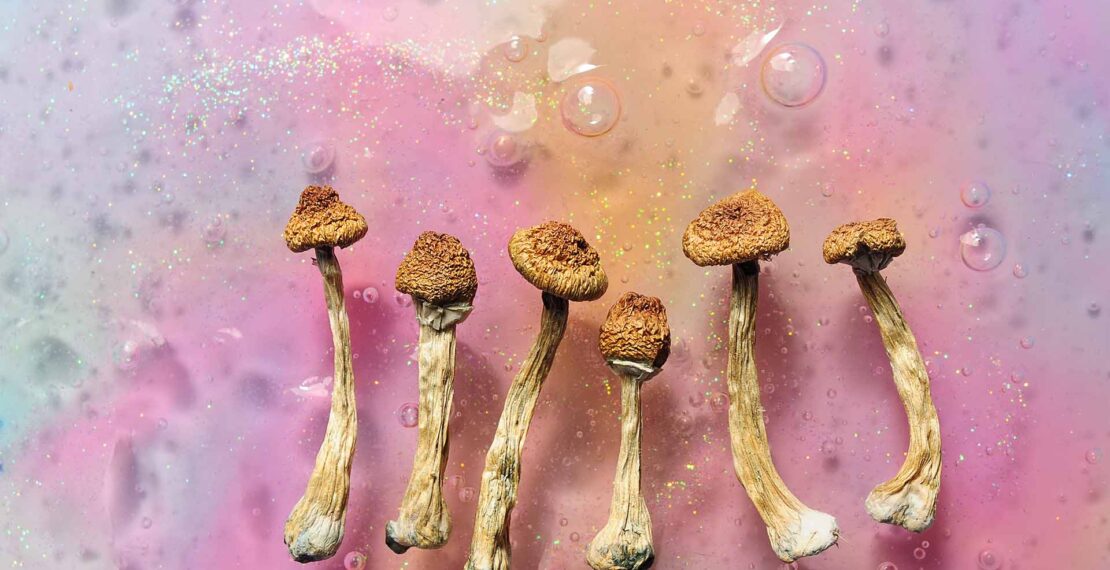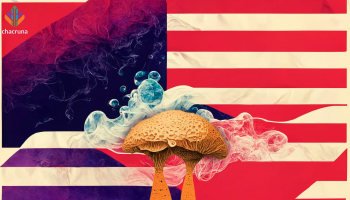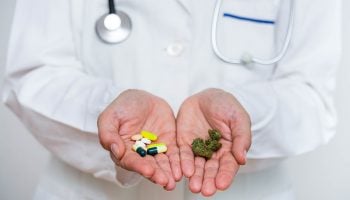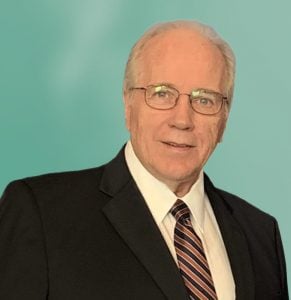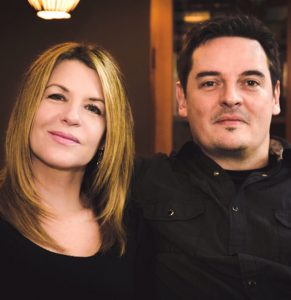Disclaimer: Psychedelics are largely illegal substances, and we do not encourage or condone their use where it is against the law. However, we accept that illegal drug use occurs and believe that offering responsible harm reduction information is imperative to keeping people safe. For that reason, this article is designed to enhance the safety of those who decide to work with psychedelics.
Psychedelic research, regulations, businesses, and patient access continued expanding this month. The federal government is still dragging its feet on compassionate psilocybin use. However, the FDA made incredible strides by ratifying MDMA treatment for PTSD. On a state level, psychedelic support is growing among citizens, while activist organizations fight for decriminalization and legalization initiatives. Amid this political landscape, psychedelic corporations are forging ahead and gaining powerful venture capital funding in the process. Here we review the top psychedelic news stories, research, and milestones for May 2022.
Oregon’s Psilocybin Training, Testing, and Product Rules are Out
Oregon passed the Psilocybin Services Act in November 2020. Now the state’s Health Authority is finally putting the framework into place. Just last week, Oregon regulators published the first round of final rules establishing allowable psilocybin product types, facilitator training requirements, and laboratory testing protocols for safety and quality. The program is wildly unique. Unlike cannabis legalization, which started with medical use, Oregon’s psilocybin program expands access to all adult residents without prerequisites. Oregon’s groundbreaking law is the first of its kind nationwide and will undoubtedly set a standard for the third wave of psychedelic acceptance.
Protesting the DEA in Support of Terminally Ill Patients’ Rights
On May 9th, Virginia activists protested outside DEA headquarters for the right of terminal cancer patients to use psilocybin. Protestors insisted that federal agents allow people to treat end-of-life anxiety and depression based on the 2018 Right to Try Act. The Act, signed by Donald Trump, allows terminal patients who exhausted traditional remedies to access alternative, unregulated therapeutics. At the demonstration, police arrested 17 protestors, while the DEA refused to speak to anyone, including cancer patients. However, following the event, the DEA responded by saying the Right to Try Act did not provide exemptions for banned drugs listed on the Controlled Substances Act, including psilocybin.
Grow 1 Year's Worth of Microdoses in Just 6 Weeks
Third Wave partnered with top mycologists to create the world’s easiest and best mushroom growing program (kit, course, and expert support).
- Pre-sterilized and sealed
(ready to use out of the box) - Step-by-step video and text course
- Access to growing expert in community
- Make your first harvest in 4-6 weeks
- Average yield is 1 - 4 ounces (28-108g)
- Fits in a drawer or closet
- Enter info for Third Wave discounts:

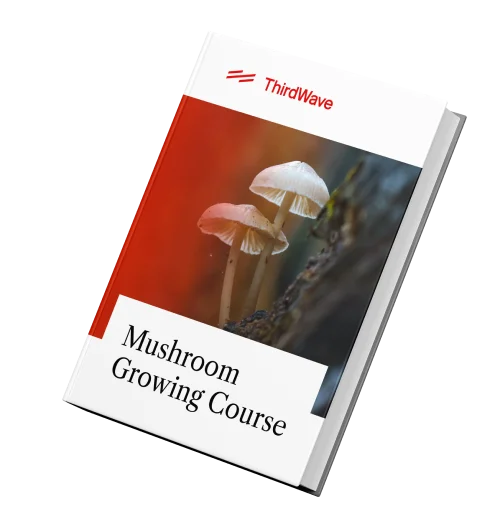
Grow 1 Year's Worth of Microdoses in Just 6 Weeks
Third Wave partnered with top mycologists to create the world’s easiest and best mushroom growing program (kit, course, and expert support).
- Pre-sterilized and sealed
(ready to use out of the box) - Step-by-step video and text course
- Access to experts in community
- Make your first harvest in 4-6 weeks
- Average yield is 1 - 4 ounces (28-108g)
- Fits in a drawer or closet
- Enter info for Third Wave discounts
Washington Hopes to Add Decriminalization to November’s Ballot
A May opinion poll shows Washington residents marginally support psychedelics. However, nearly one in six respondents said they’re on the fence about the issue. The poll results come at a time when the Steering Committee is hosting a signature drive to add decriminalization to the November ballot. If the proposed Initiative 1922 passes, Washington could eliminate drug possession penalties and shift $140 million annually toward expanded outreach, treatment, and recovery services. To get Initiative 1922 on the ballot, the Steering Committee needs more than 300,000 signatures by July 8th. Valid Washington voters can endorse the ballot by filling out the form here.
Venture Capitalists are Starting to Invest in Psychedelics
The psychedelic drug development landscape is rife with regulatory concerns. Still, that hasn’t stopped non-profits from launching clinical trials or pharmaceutical companies from developing psychedelic-based medicines. As the third wave of psychedelic acceptance rages on, venture capitalists are also taking an interest. Vine Ventures, PsyMed Ventures, Neo Kuma Ventures, and Noetic Fund are just a few active industry investors. Another example is Palo Santo, a Chicago-based psychedelics VC firm that launched in July with $35 million to back psychedelic drug developers working to treat a range of conditions with 5-MeO-DMT, MDMA, and psilocybin. Now we wait to see if politicians can keep pace with explosive corporate and social interests.
Grow 1 Year's Worth of Microdoses in Just 6 Weeks
Third Wave partnered with top mycologists to create the world’s easiest and best mushroom growing program (kit, course, and expert support).
- Pre-sterilized and sealed
(ready to use out of the box) - Step-by-step video and text course
- Access to growing expert in community
- Make your first harvest in 4-6 weeks
- Average yield is 1 - 4 ounces (28-108g)
- Fits in a drawer or closet
- Enter info for Third Wave discounts:


Grow 1 Year's Worth of Microdoses in Just 6 Weeks
Third Wave partnered with top mycologists to create the world’s easiest and best mushroom growing program (kit, course, and expert support).
- Pre-sterilized and sealed
(ready to use out of the box) - Step-by-step video and text course
- Access to experts in community
- Make your first harvest in 4-6 weeks
- Average yield is 1 - 4 ounces (28-108g)
- Fits in a drawer or closet
- Enter info for Third Wave discounts
Field Trip to Split into Two Independent Companies
Field Trip Health, a psychedelic therapy company, recently announced splitting two of its current divisions into legally independent firms. The former Field Trip Discovery division will be rebranded as Reunion Neuroscience Inc. to develop its novel synthetic psychedelic molecule FT-104 and others. Field Trip Health will change to Field Trip Health and Wellness Ltd., focusing on optimizing its 12 ketamine-assisted psychotherapy centers in the US and Canada. The organization says it plans to fund training for clinicians and expand psilocybin research. The company also says the decision will minimize capital expenditures and allow it to support more patients through its digital initiatives.
International Survey Suggests Psilocybin is Relatively Safe
A wide-scale international drug survey analysis indicated that psilocybin is relatively safe. The survey analysis showed that 0.2% of 9,233 people who used magic mushrooms sought emergency medical care. The Journal of Psychopharmacology findings also indicated that undesirable outcomes usually subsided within 24 hours and typically involved psychological distress rather than physical damage. The most frequent incidents included anxiety (68%), paranoia (68%), and seeing/hearing things (42%). The most common predictor for seeking emergency treatment was age, with younger-aged users most likely to pursue emergency treatment. First-time use and frequency of use were not sufficient predictors. This type of mass analysis is critical, especially as voters and regulators debate the topic of psychedelic safety.
Colorado Governor Backs Psychedelics Reform
Colorado’s governor Jared Polis voiced support for decriminalizing psychedelics during a recent interview on the Reason Podcast. Gov. Polis stopped short of supporting psilocybin legalization. However, he did say that entheogenic research shows significant promise for treating mental health conditions and that the current prohibition creates unnecessary barriers to clinical research. In the interview, this openly gay married father of two reportedly said psychedelics “might have some therapeutic uses around people that are trying to get off of opioids or people [with] major issues with depression or anxiety.” While the interview doesn’t indicate an immediate regulatory shift, it offers hope that statewide psychedelic decriminalization could make it onto Colorado’s ballot in November.
LSD And Salvia Divinorum Linked to Depression And Suicidal Thinking
According to research published in the Addictive Behaviors Journal, people who used LSD, salvia divinorum, or DMT in the past year were more likely to report depression and suicidal thoughts. These findings seem to counter the breadth of recent studies that show psychedelics elicit positive mental health results. However, the study authors indicated that current research is biased because it focuses on controlled psychotherapy settings. The authors also noted that most surveys analyze lifetime psychedelic use. That’s why the researchers only focused on recreational experiences in the past year. The findings seem grim, but the cross-sectional study does not infer causality. In other words, it’s unclear whether participants were already depressed or developed symptoms post-psychedelic journeys.
FDA Gives Expanded Access to MDMA for PTSD
The FDA recently expanded MDMA patient access to clinics in ten US cities. Even though the program is still in clinical trials, MDMA’s proven safety and efficacy thus far make it eligible for compassionate use. That means approved practitioners can start administering the psychedelic for PTSD before FDA approval in cases where patients haven’t found relief from mainstream therapies. MDMA offers significant hope for these people, as two-thirds of trial patients no longer experienced symptoms after the recommended protocol. Turpin’s Institute in Waynesville will be the first to offer MDMA-assisted psychotherapy, and individual treatments will take four to six months.
May marked another memorable month toward progressing the psychedelic mission. We look forward to continuously updating you with the latest, high-quality news surrounding plant medicines, clinical developments, education, and more. Did you enjoy this article? Let us know! See something missing? We’ll consider adding it. Contact us today.

